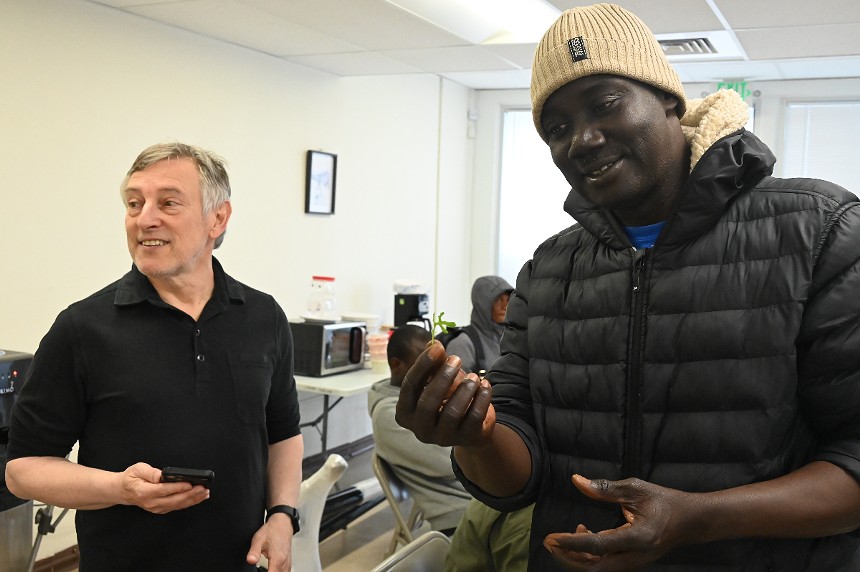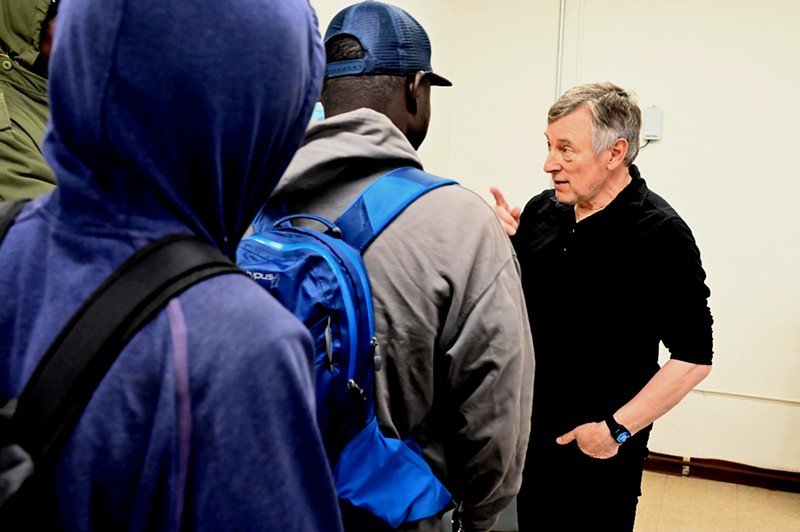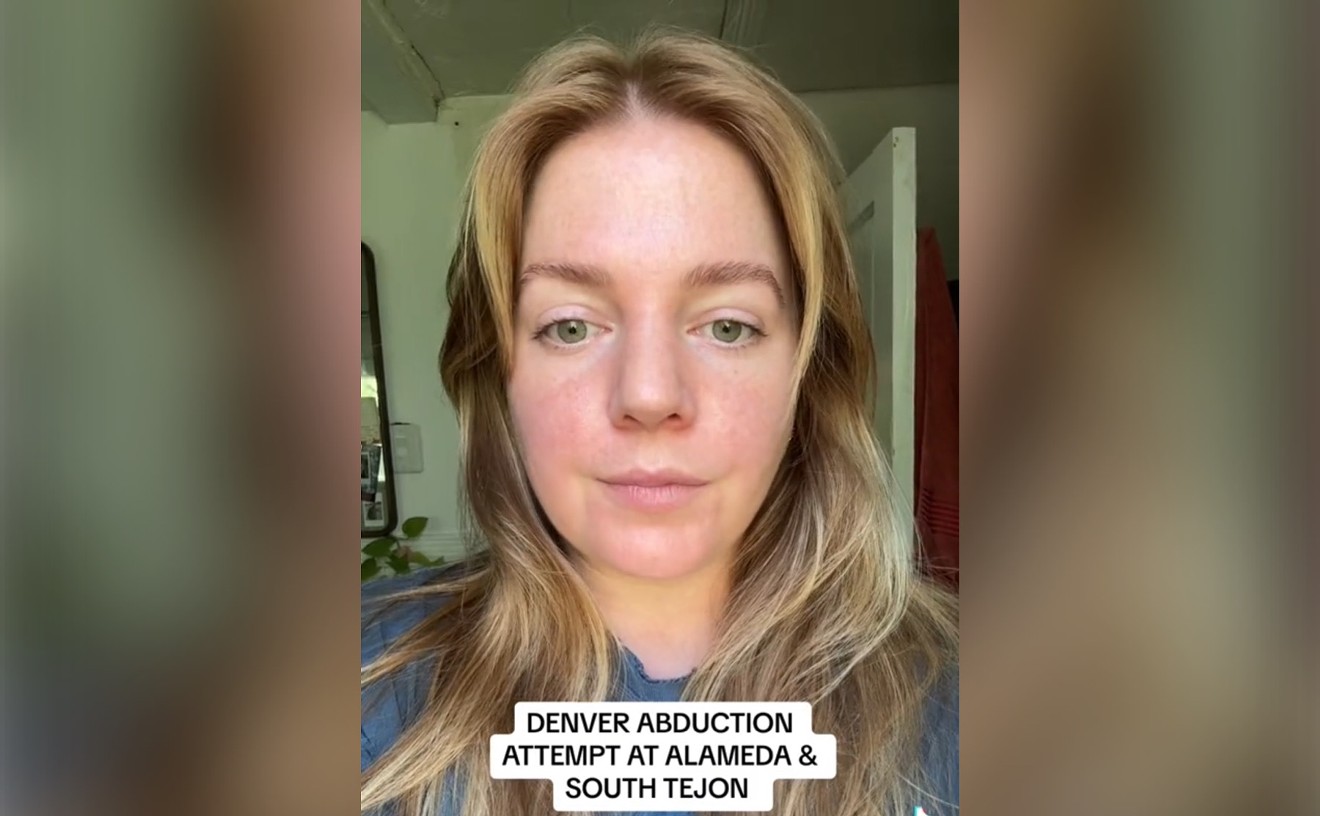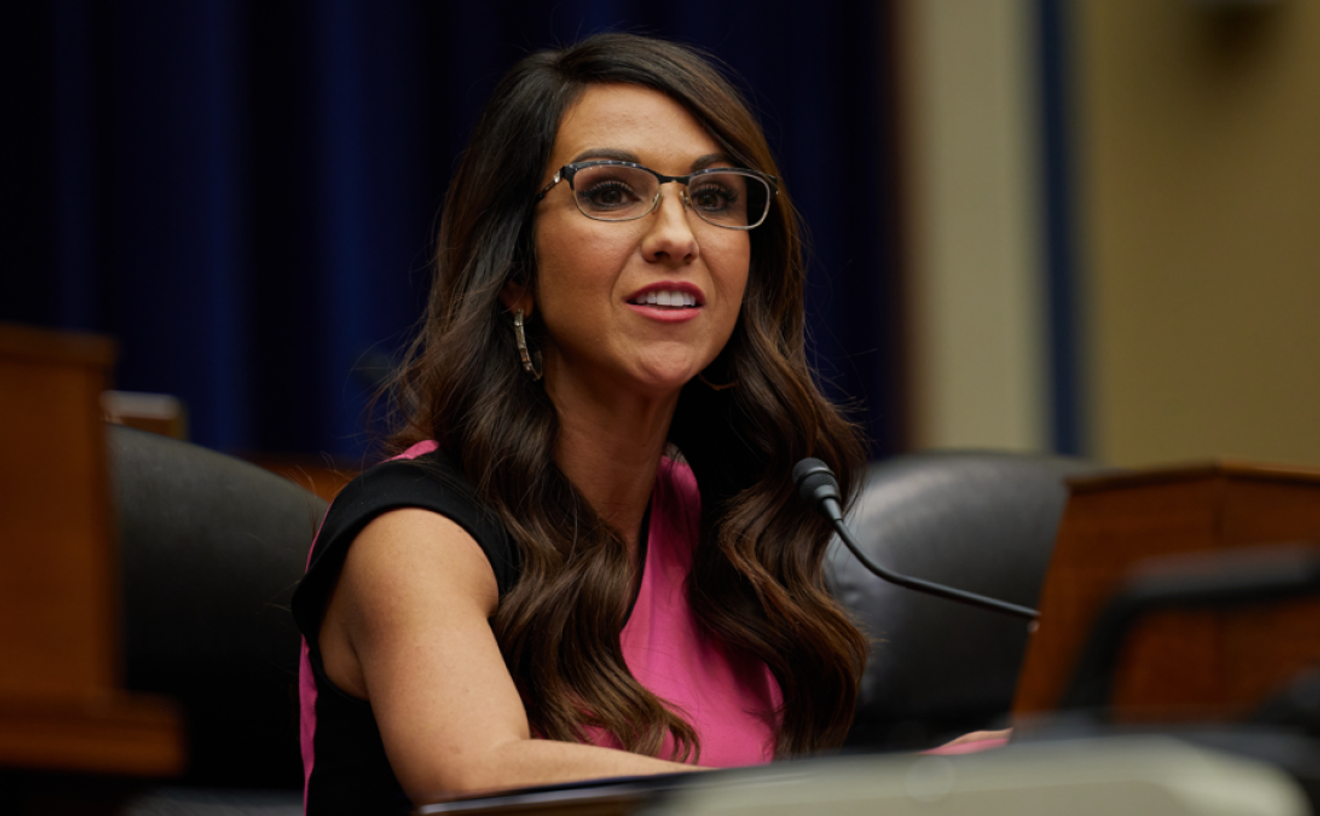Gattegno, the director of local nonprofit Aurora Community Connections, knows why: "They need food. They need to know where they're going to sleep."
Aurora Community Connections doesn't have beds or food to offer, but it does provide tutoring, health fairs and affordable therapy. Gattegno thinks that the migrants in Denver are close to securing their basic needs and will soon turn to nonprofits like his, so he's getting ready for them.
"Once you've got that stability, food, housing and jobs, then you start looking for other sources of help," Gattegno says. "We're willing to help right away."
Aurora Community Connections was founded in 2007 with the help of Colorado organization the Family Resource Center Association, which has opened more than thirty nonprofits across the state to offer services geared toward family needs. The Aurora branch, close to the eastern border of Denver and anchored by East Colfax Avenue, opened with the intention of addressing needs mostly felt in the Latino immigrant community of northwest Aurora.
From its resource center at 9801 East Colfax Avenue, ACC offers mental health support with therapists on staff, child care, tutoring and early-education programs as well as health fairs with free screenings and visitations with doctors, dentists and optometrists, citizenship exam prep courses, classes in dance, martial arts, yoga and Zumba, and a summer camp. It also plans to bring back cooking classes soon, Gattegno adds.
Since October 2022, northwest Aurora has been hit by the arrival of thousands of migrants from East Africa, mostly from Mauritania, but also from Mali and Senegal. Unlike Denver, the City of Aurora isn't shelling out millions to directly support migrants after the Aurora City Council voted in March to commit to a self-proclaimed "non-sanctuary" city status.
The City of Denver has spent more than $70 million feeding, sheltering and transporting the estimated 42,000 migrants who have arrived in the city since December 2022, most of whom are from Venezuela, with a small portion from Colombia. On May 9, Denver launched its Asylum Seekers Program, which sets up 1,000 migrants at a time with six months' rent, job training and guidance with their immigration cases.
In October 2022, several nonprofits formed the Aurora Migrant Response Network, a coalition of more than fifty nonprofits that supports influxes of migrants. Aurora Community Connections was one of the first members of the AMRN, Gattegno says, joining soon after it was created.
Because the City of Aurora isn't involved in the migrant response, the only count of migrant arrivals from East Africa comes from the AMRN, which estimates upwards of 10,000 have arrived since October 2022.
Gattegno has seen migrants form lines that wrap around the block outside fellow Aurora nonprofits like the Village Exchange Center and the Dayton Day Labor Center, but only a couple of Aurora nonprofits have seen a large turnout of Venezuelans seeking their services. He believes that will change soon, however.
"I'm convinced there are going to be more Venezuelan families [coming to Aurora]. There already are, but I think the numbers are going to start going up in terms of our clients," he says. "Once they get that stability, that's where we'll come in."

Gattegno helps teach Abdoul, a Mauritanian migrant, about different types of leafy greens and vegetables during a cooking class.
Bennito L. Kelty
His anticipation is based on Maslow's hierarchy of needs, a five-stage model that lays out which needs humans will try to secure before others. The first stage is looking for immediate, life-saving needs like food, clothing and shelter, and the second is for education, health and wellness, all of which ACC focuses on.
"The Mauritanians are a good example of it: They need food, they need to know where they're going to sleep — and once that's taken care of, that's when we come in," he says. "They're not going to right away wonder, 'Well, what kind of health care do I need? How am I going to educate myself?' This is not first and foremost on their mind."
Gattegno expects that in about a year's time, or sooner, Venezuelan migrants in Denver will find themselves in the second stage, looking for jobs, health care and child care. He expects Mauritanians to follow suit, but since their numbers are smaller, he doesn't think their transition will be as impactful to ACC.
With the help of the AMRN, Gattegno expects that ACC will be able to find funding to rev up services, because large funders prefer donating to one group as opposed to individual nonprofits, he says.
"Frankly, one of the reasons I joined the coalition was to apply for funds together," he explains. "Some of the largest funders — the Colorado Health Foundation, for example — are much more receptive to a group like the coalition going to them [saying], 'This is the A-Z solution we're proposing, because as you know, the city isn't doing anything.'"
The City of Denver estimates that roughly 20,000 migrants are living across the Denver metro area. Gattegno feels well equipped to help them at ACC, with Spanish-speaking staff and a seventeen-year history of working mostly with Latino immigrants in Aurora.
"The large group of migrants — still the largest group is the Venezuelans — they are a prime target for us because of the language and the reputation we have," Gattegno says. "Immigrant Latinos are the bulk of people we see here. That's their choice, and that's the reputation we have, and we love it."
"The large group of migrants — still the largest group is the Venezuelans — they are a prime target for us because of the language and the reputation we have," Gattegno says. "Immigrant Latinos are the bulk of people we see here. That's their choice, and that's the reputation we have, and we love it."
So far, however, he says the only time he's seen Venezuelan migrants using ACC services was at a health fair, which are held several times throughout the year. In the near future, he hopes to see more instances of multiple family members participating, such as kids going to tutoring or martial arts classes while their parents attend citizenship or cooking classes.
Most kids enrolled at ACC return yearly, and many have spent their entire youth relying on its programs and services, Gattegno adds.
On Monday, June 3, ACC will begin its annual summer camps: one for kids ages three to five, and another for ages seven to fourteen. The camp costs $35 and provides kids with eight weeks of learning, activities, snacks and lunch every day from 9 a.m. to 1 p.m.
Gattegno notes that the camp hasn't seen a jump in migrant enrollment just yet.
"I would hope that Venezuelan families get access to our resources and see summer camp as something they would like their children to participate in," he says. "The goal is to be able to help families when the need comes and not wonder who's going to help."
Families interested in signing up for the summer camp should contact ACC online or at 720-975-0147.












